|
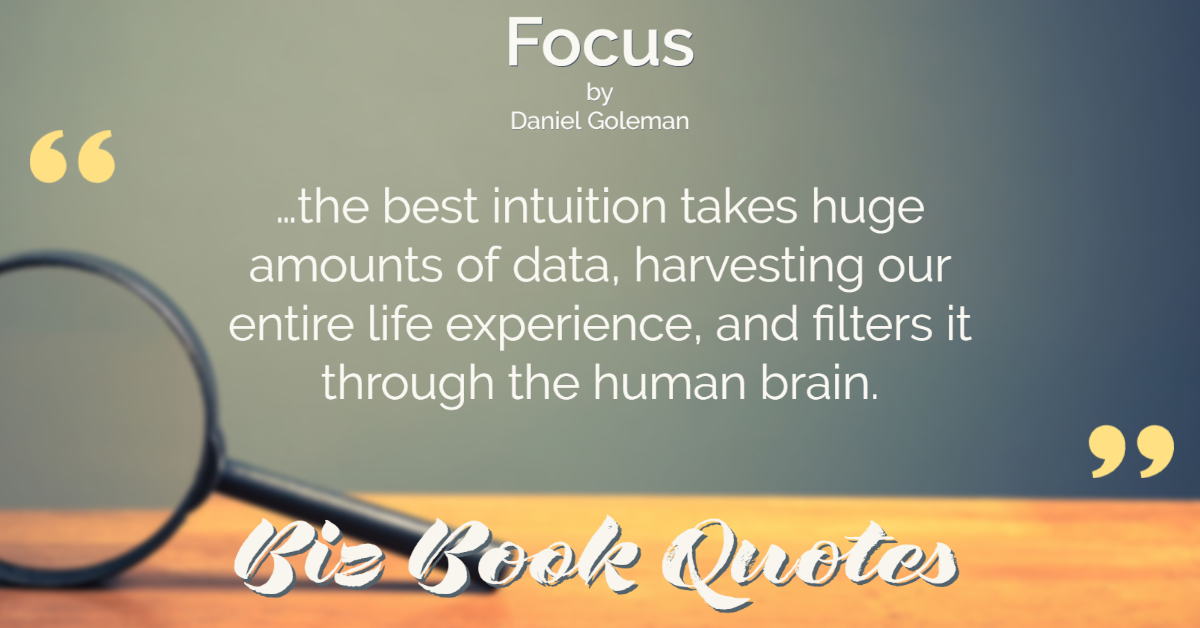
|
Focus:
…the best intuition takes huge amounts of data, harvesting our entire life experience, and filters it through the human brain.
|
135 |
|
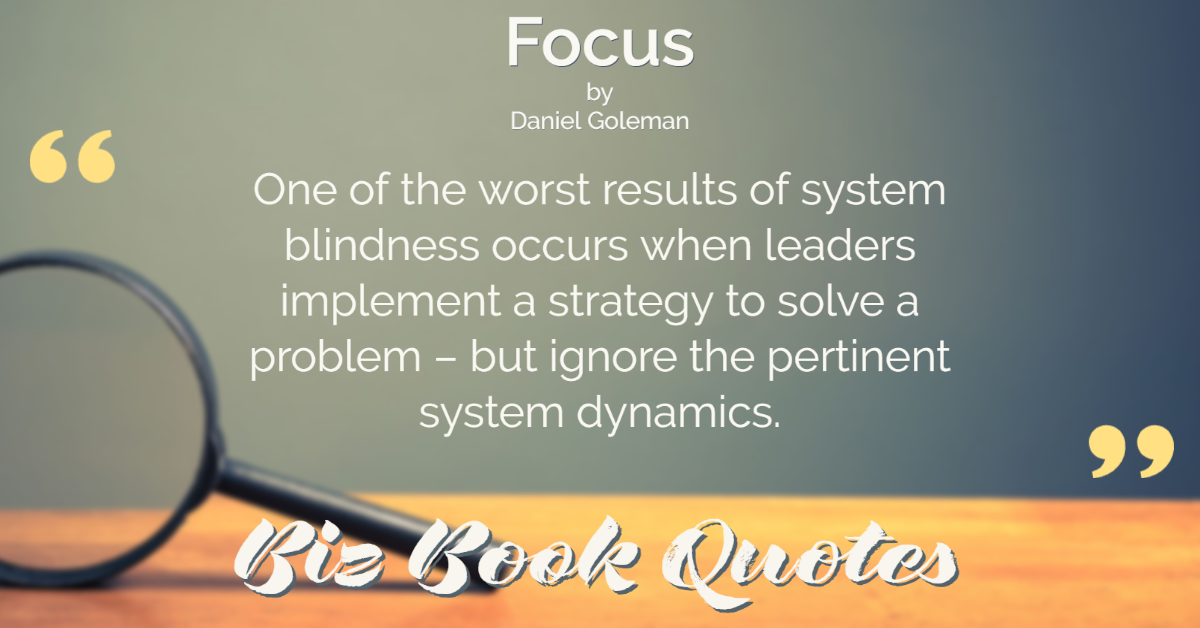
|
Focus:
One of the worst results of system blindness occurs when leaders implement a strategy to solve a problem – but ignore the pertinent system dynamics.
|
142 |
|
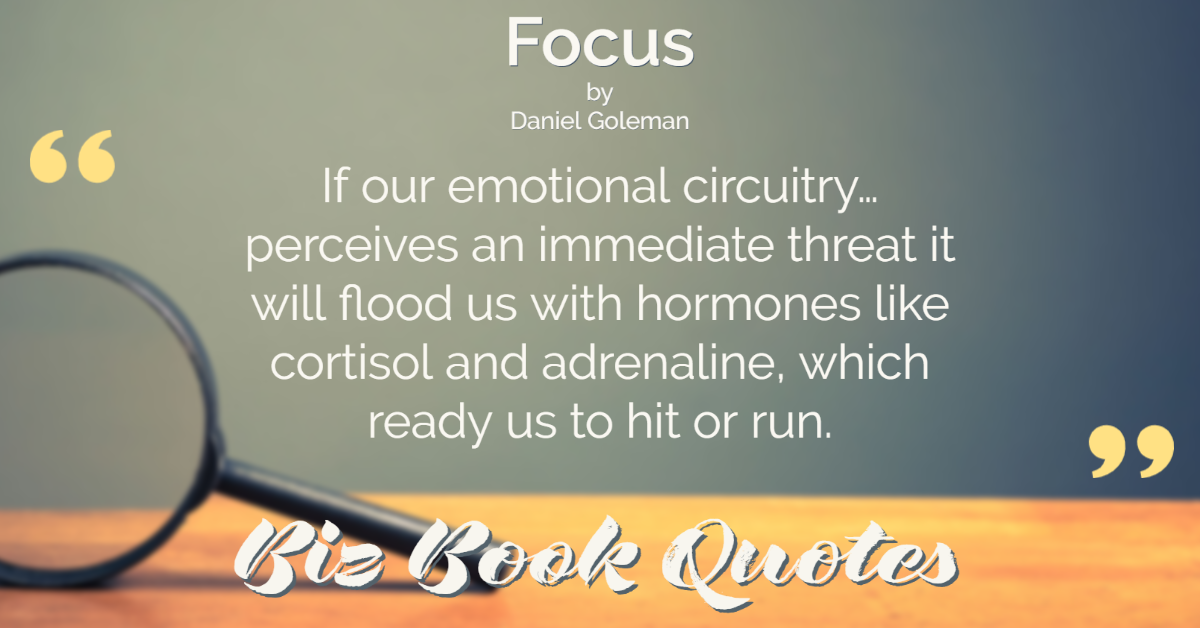
|
Focus:
If our emotional circuitry… perceives an immediate threat it will flood us with hormones like cortisol and adrenaline, which ready us to hit or run.
|
144 |
|
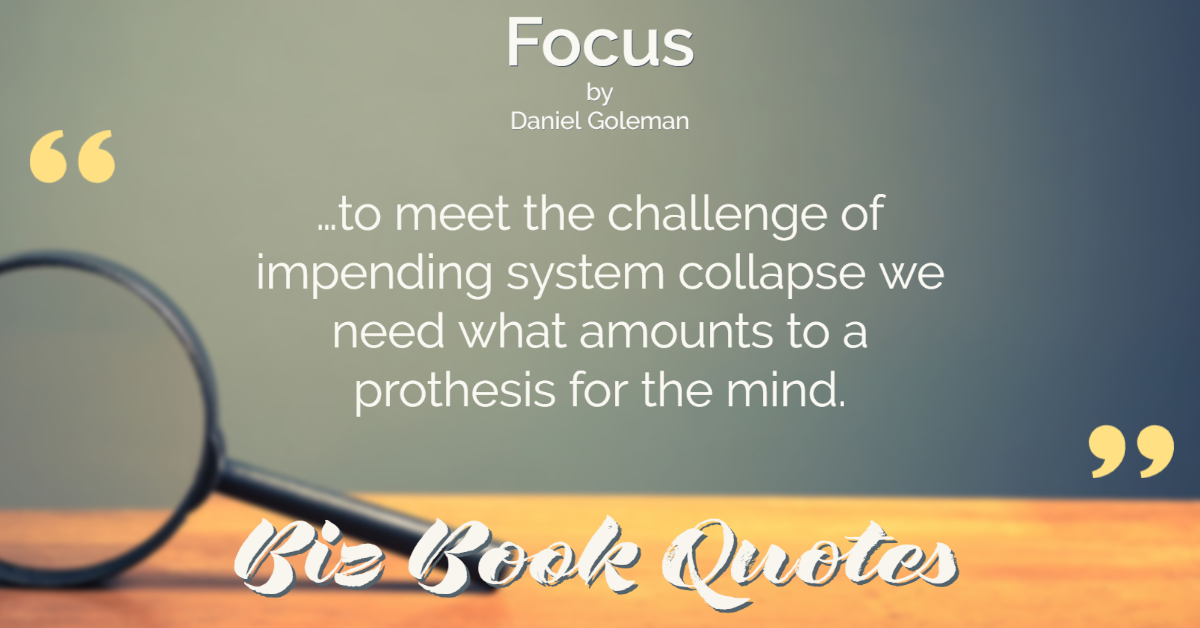
|
Focus:
…to meet the challenge of impending system collapse we need what amounts to a prothesis for the mind.
|
145 |
|
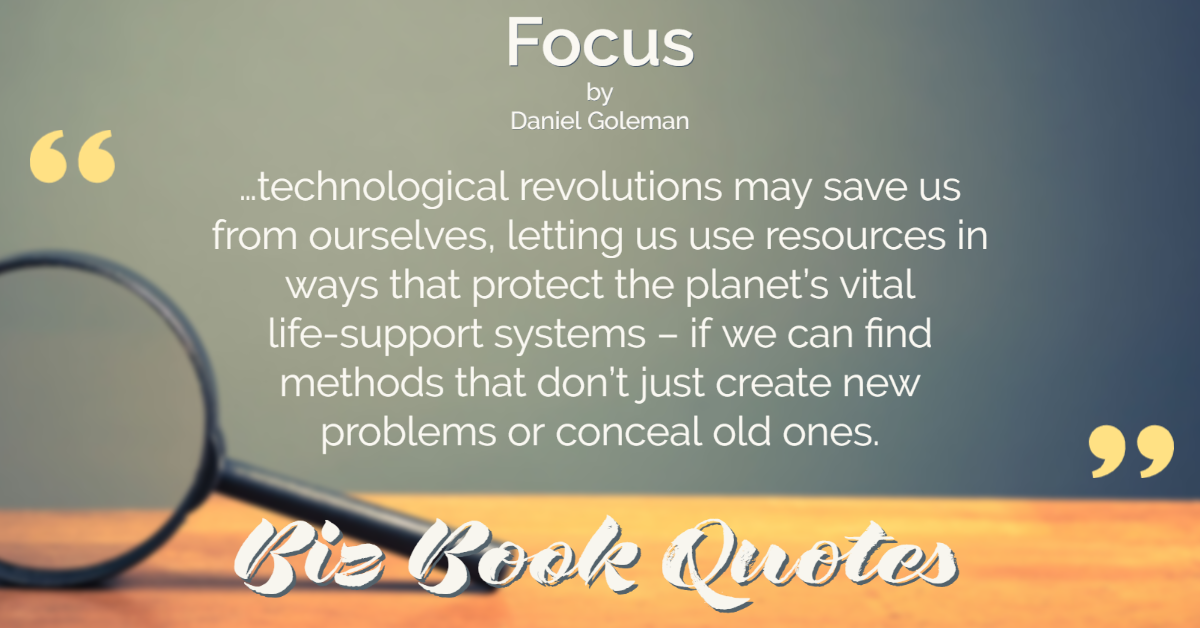
|
Focus:
…technological revolutions may save us from ourselves, letting us use resources in ways that protect the planet’s vital life-support systems – if we can find methods that don’t just create new problems or conceal old ones.
|
148 |
|
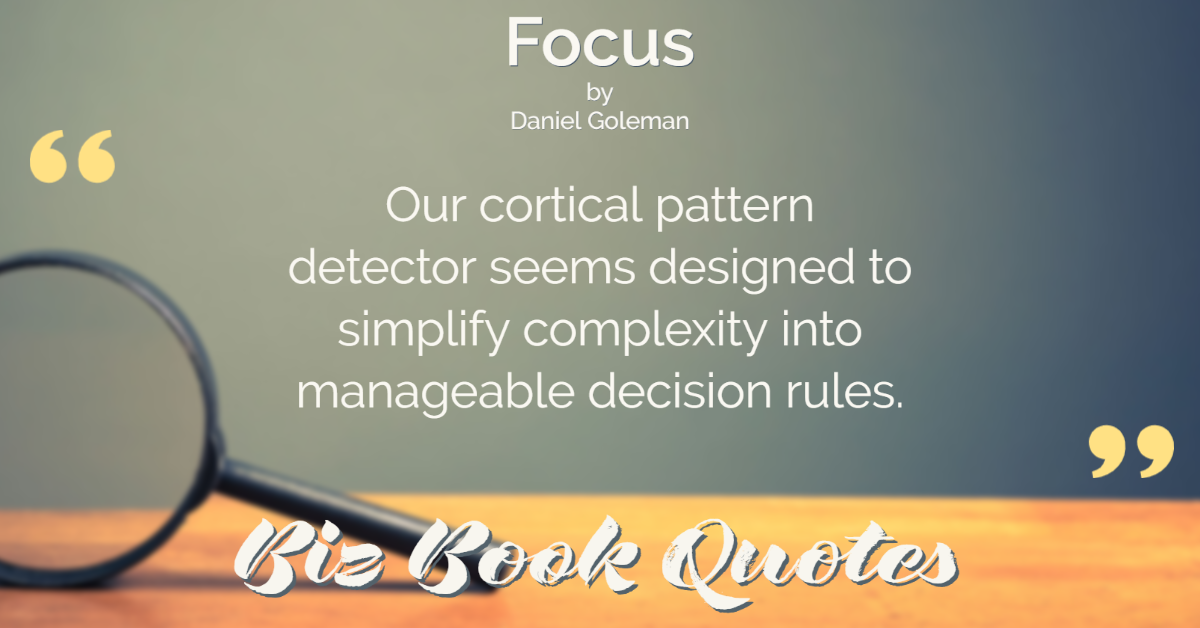
|
Focus:
Our cortical pattern detector seems designed to simplify complexity into manageable decision rules.
|
150 |
|
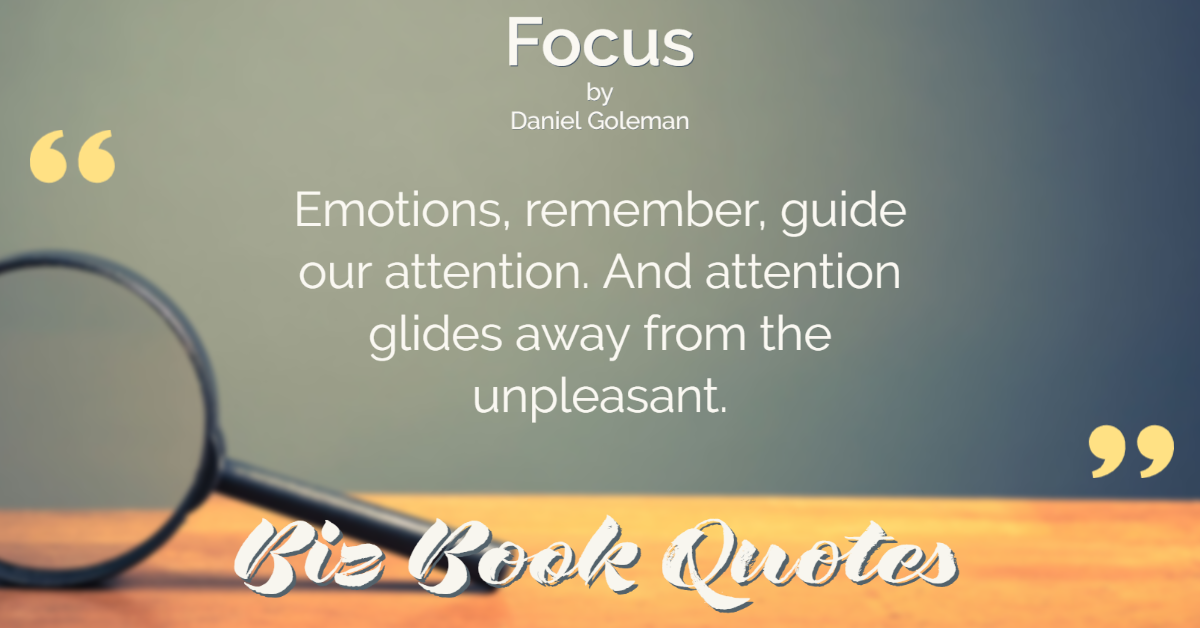
|
Focus:
Emotions, remember, guide our attention. And attention glides away from the unpleasant.
|
150 |
|

|
Focus:
Education upgrades mental models. Helping students master the cognitive maps… means these insights will become part of their decision rules in adulthood.
|
156 |
|
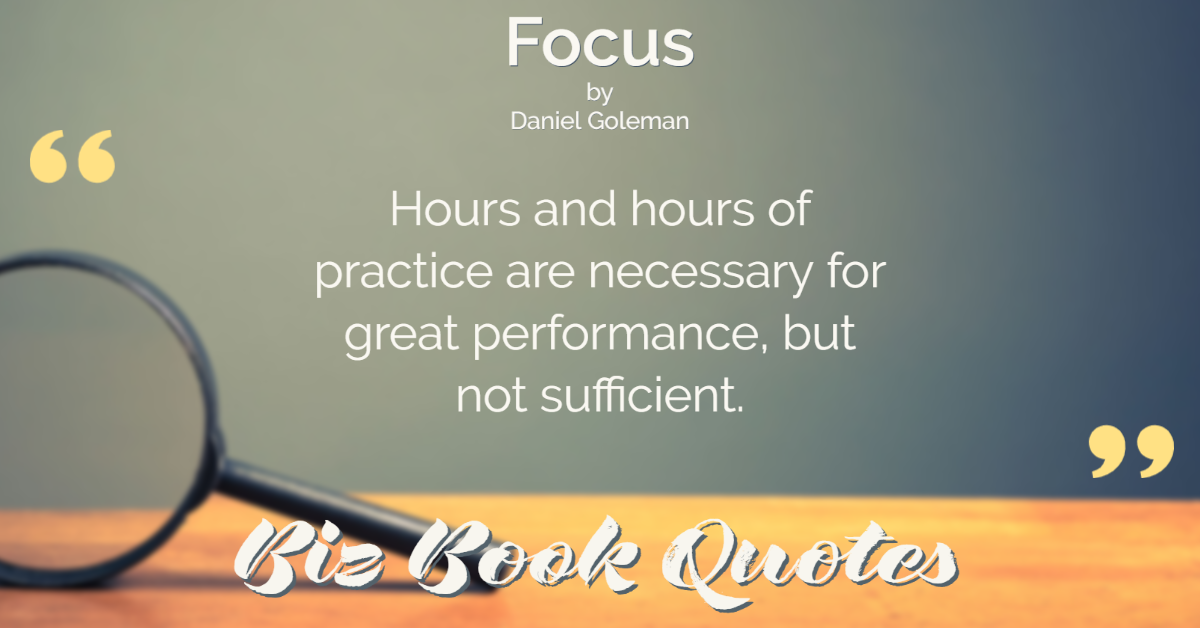
|
Focus:
Hours and hours of practice are necessary for great performance, but not sufficient.
|
163 |
|
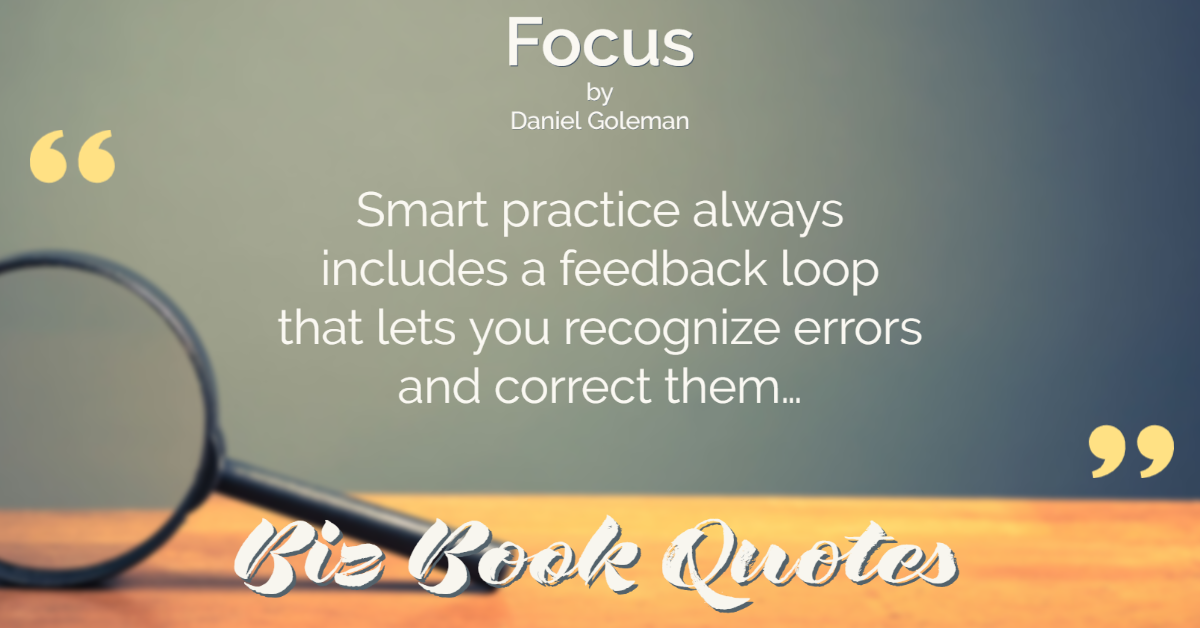
|
Focus:
Smart practice always includes a feedback loop that lets you recognize errors and correct them…
|
164 |











